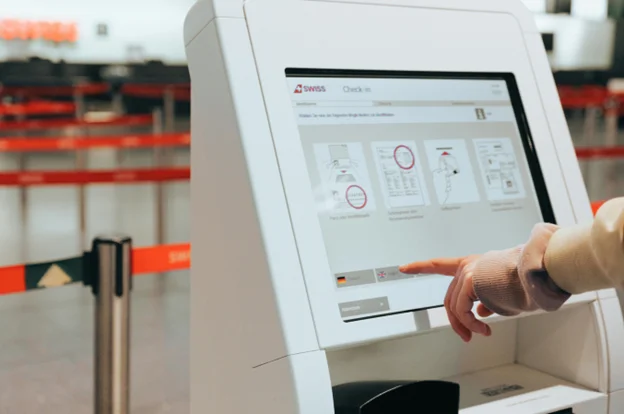How Digital Wallets Will Revolutionize Financial Independence
In today’s fast-paced world, achieving financial independence has become a goal for many. As people look for ways to take control of their finances, digital wallets have emerged as an essential tool to help streamline this process. Digital wallets are not just for storing money; they are evolving into sophisticated platforms that offer users unprecedented financial control. By simplifying transactions, enhancing savings, and integrating with advanced financial services, digital wallets are poised to revolutionize how we approach financial independence.
The Rise of Digital Wallets in the Financial Ecosystem
Digital wallets, once seen as mere tools for making payments, have evolved into comprehensive financial hubs. These digital platforms allow users to store and manage various financial assets, from traditional currencies to cryptocurrencies. As they integrate with payment systems, credit cards, bank accounts, and even investment platforms, digital wallets are becoming a one-stop solution for managing finances. With this integration, users can track spending, monitor savings, invest, and even access credit, all from a single interface.
This shift from basic payment tools to comprehensive financial platforms is making it easier than ever for individuals to manage their finances with an eye toward long-term independence. By leveraging digital wallets, people can take control of their spending, savings, and investment decisions, creating more pathways to financial freedom.
Simplifying Financial Management
One of the core advantages of digital wallets is their ability to simplify financial management. Through easy-to-use interfaces and sophisticated tracking systems, digital wallets allow users to monitor their income and expenses in real time. Features like automatic categorization of spending, monthly budget creation, and instant notifications of potential overdrafts or high-spending categories are helping individuals make better financial decisions. By using these tools effectively, users can gain a deeper understanding of their spending habits, identify unnecessary expenses, and set financial goals that align with their objectives for independence.
Additionally, predictive features in digital wallets provide insights into a user’s financial trajectory. For example, by analyzing past spending patterns, digital wallets can predict when a user may need to adjust their budget or when upcoming expenses may require attention. This ability to forecast spending and balance cash flow is crucial for building the financial discipline needed to achieve financial independence.
Empowering Personal Savings and Investments
Achieving financial independence often requires disciplined saving and smart investing. Digital wallets play a critical role in this by enabling users to automate savings and access personalized investment opportunities. Many digital wallets now offer savings goals that users can set and track over time. By automatically transferring small amounts of money to a designated savings account or fund, users can gradually build their savings without much effort, reinforcing the habit of saving for the future.
Moreover, digital wallets are becoming platforms for personalized investment. They can integrate with investment accounts, allowing users to manage both traditional and cryptocurrency portfolios in one place. As digital wallets connect with emerging financial services such as robo-advisors, users can access investment advice tailored to their financial goals and risk tolerance. This level of accessibility helps individuals diversify their portfolios and invest wisely, furthering their progress toward financial independence. In the case of more specialized investments, such as in a crypto prop firm, digital wallets can allow seamless transfers, monitoring, and real-time analytics, making it easier to engage with complex financial assets.
Enhanced Security and Control
Financial independence is not just about making money; it’s also about safeguarding it. Traditional financial systems often leave users vulnerable to security breaches, whether from fraud, identity theft, or unauthorized access. Digital wallets are designed with advanced encryption and authentication measures to provide an added layer of protection. Features like biometric authentication, two-factor authentication, and real-time transaction alerts ensure that users have control over their finances at all times.
Additionally, blockchain technology, which is integrated into many digital wallets, adds a layer of transparency and security to financial transactions. Blockchain ensures that every transaction is securely recorded and cannot be altered, which reduces the risk of fraud and gives users greater confidence in managing their money independently.
The Role of Financial Education and Digital Wallets
Digital wallets are also contributing to the democratization of financial education. With integrated financial management tools, users gain access to educational resources that can help them improve their financial literacy. Digital wallets often include budgeting tutorials, investment advice, and even news updates on market trends, allowing users to stay informed about the financial world. This level of access to real-time information empowers individuals to make informed decisions about saving, investing, and growing their wealth.
For example, many digital wallets now provide users with insights into the performance of their investment portfolios, allowing them to track their assets and adjust their strategies as needed. By using these resources, individuals can make smarter decisions and avoid the common pitfalls of financial management, thus accelerating their journey toward financial independence.
A Future of Financial Freedom
The future of digital wallets holds immense promise in the quest for financial independence. With continuous advancements in technology, digital wallets are set to integrate even more financial tools, offering users unprecedented access to savings, investments, budgeting, and security. By simplifying financial management and empowering users with personalized insights, digital wallets are helping individuals take control of their financial futures.
As these platforms continue to evolve, we can expect greater integration with emerging financial services, such as real-time credit scoring, peer-to-peer lending, and more sophisticated investment opportunities. With digital wallets at the center of this ecosystem, individuals will have the tools they need to build lasting wealth and ultimately achieve the financial independence they desire.
Conclusion
Digital wallets are more than just tools for making payments—they are becoming the cornerstone of financial independence. By offering users comprehensive financial management tools, personalized investment opportunities, and advanced security features, digital wallets are making it easier than ever to take control of one’s financial future. Whether it’s automating savings, tracking spending habits, or investing in assets like a crypto prop firm, digital wallets are empowering individuals to make smarter financial decisions and pave the way to financial freedom. As these platforms continue to innovate, they will undoubtedly play a crucial role in reshaping the way we approach financial independence.







